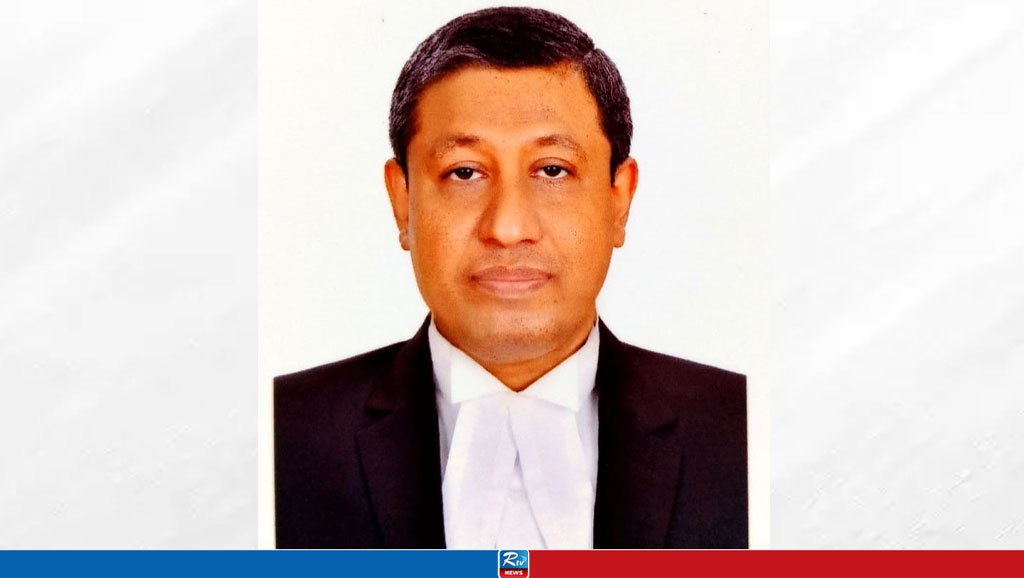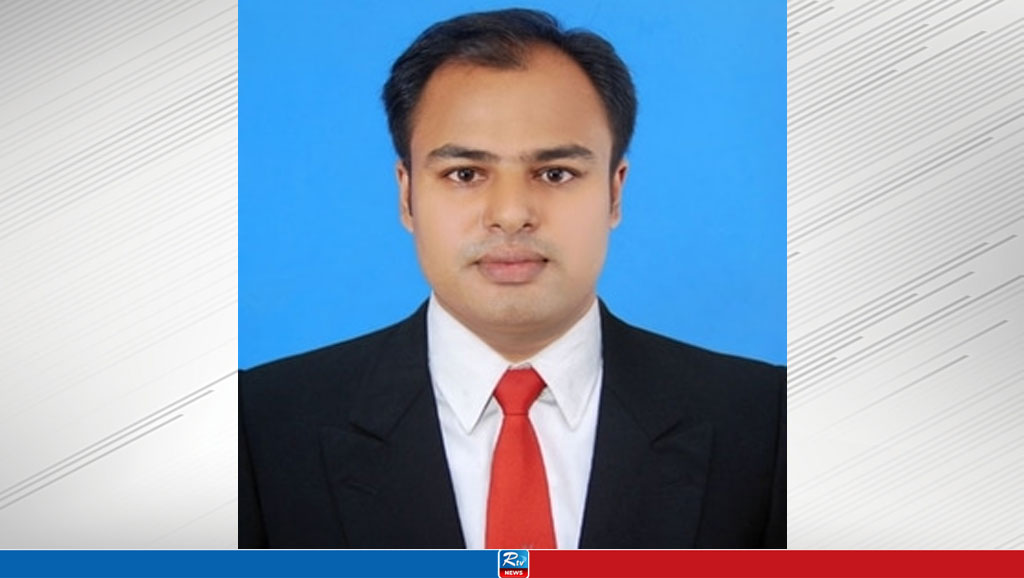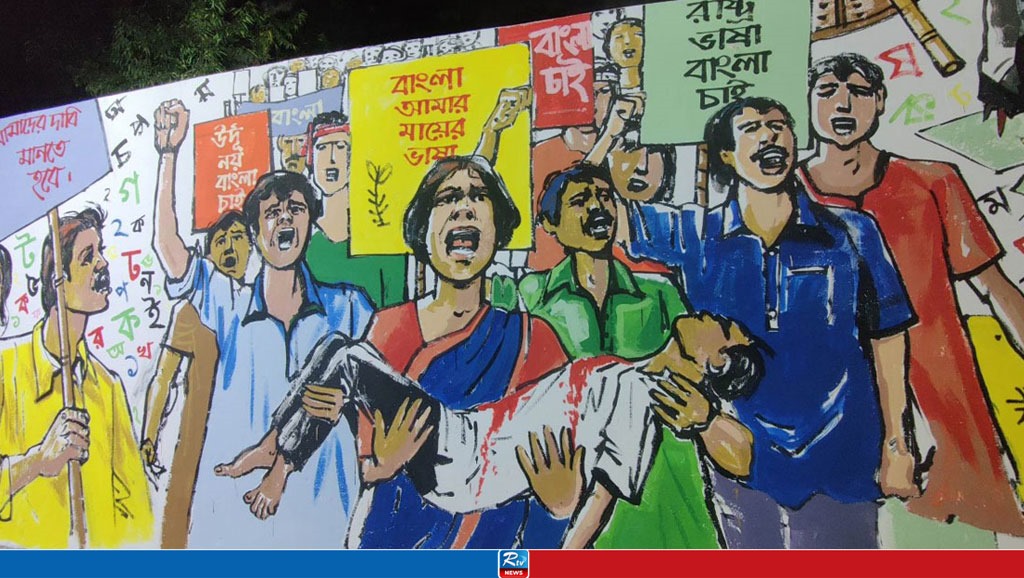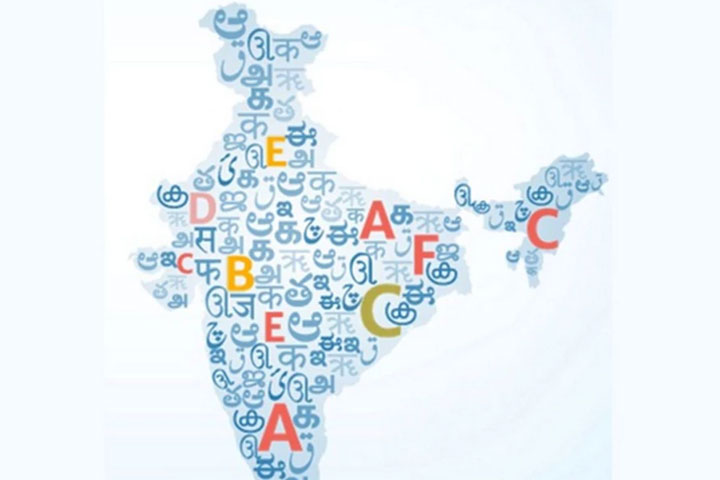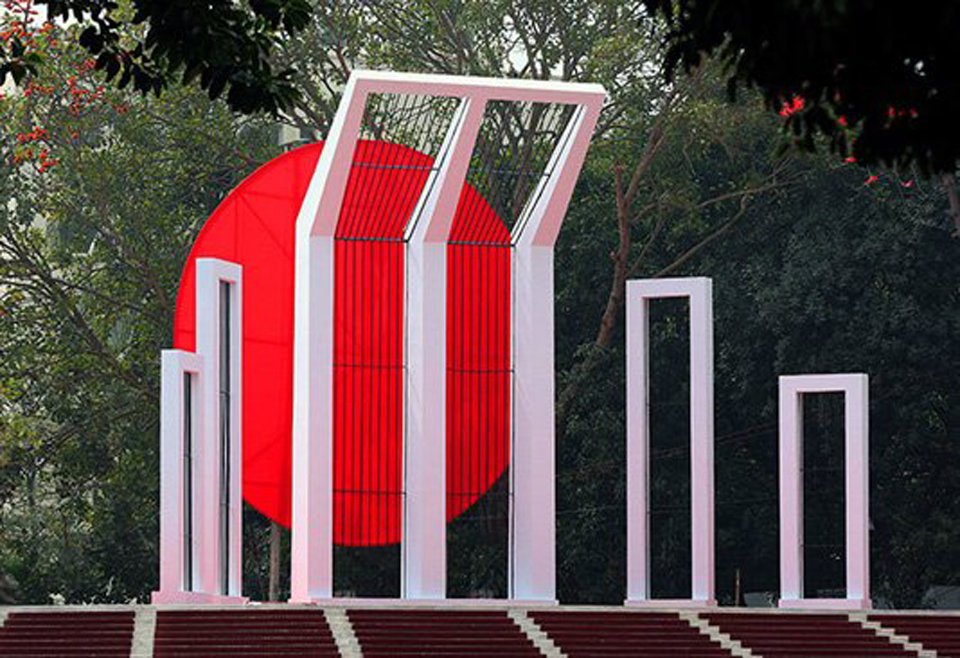Nation set to pay homage to language martyrs tomorrow
The nation is set to observe the 'Shaheed Dibash' (Martyrs Day) and the International Mother Language Day tomorrow with due respect maintaining health guidelines.
People from all walks of life will pay glowing tributes to the memories of language movement martyrs, the valiant sons of the soil who made supreme sacrifices to establish the rights of the mother tongue, Bangla, in 1952.
The day will also be observed around the world as the UNESCO recognised the 'February 21 (Ekushey February)' as the International Mother Language Day on November 17, 1999.
The government has already taken extensive programmes to observe the 'Shaheed Dibash' and the International Mother Language Day in a befitting manner.
President M Abdul Hamid and Prime Minister Sheikh Hasina gave separate messages paying rich tributes to those who embraced martyrdom on the day.
The day is a public holiday.
In observance of the day, the Central Shaheed Minar premises is being decorated with paintings, graffiti, buntings and selected verses on the mother language.
Tight security measures have been enforced around the main altar of the Shaheed Minar, its adjoining areas and Azimpur graveyard of the language martyrs.
Generally the president and the prime minister lead the nation to pay homage to the Language Movement heroes by placing wreaths at the Central Shaheed Minar at one minute past zero hours.
But due to COVID-19 pandemic, President M Abdul Hamid and Prime Minister Sheikh Hasina will not be at the Central Shaheed Minar to pay homage, instead of, their military secretaries will place wreaths on their behalf at the Central Shaheed Minar at one minute past zero hours.
Different political-social-cultural-professional organizations, including the ruling Awami League, have taken various programmes such as seminars and cultural functions, to observe the Amar (immortal) Ekushey and the International Mother Language Day in a befitting manner.
The Cultural Affairs Ministry has drawn up an elaborate programme to observe the 'Shaheed Dibash' (Language Martyrs Day) and the International Mother Language Day-2022 with solemn dignity.
The programme was finalized following an inter-ministerial meeting held on January 16 last with State Minister for Cultural Affairs KM Khalid in the chair.
As per the programme, on the occasion of the birth centenary of Father of the Nation Bangabandhu Sheikh Mujibur Rahman, his special contribution to the language movement will be projected in various programmes on the Martyrs' Day and the International Mother Language Day.
The national flags will be kept at half-mast in a proper manner having accurate size at all the buildings of government, semi-government, autonomous and private organisations and educational institutions.
In line with the national programmes, all educational institutions, local government bodies, district and upazila administration, Bangladesh missions abroad will take proper measures to observe the day, maintaining health guidelines considering the COVID-19 situation.
Fateha and Qurankhwani will be offered at Azimpur graveyard and special prayers will be arranged at all worship places across the country seeking eternal peace of the language martyrs.
Consulting with concerned people, Cultural Affairs Ministry and Dhaka University authorities will finalise programmes to be held at the Central Shaheed Minar on the day.
Considering the prevailing COVID-19 situation and following the proper hygiene rules, a maximum of 5 delegates from each organization and a maximum of 2 persons at the individual level can lay wreaths at the Shaheed Minar.
Basins and liquid soaps will be kept at all the entrances of the Shaheed Minar for washing hands. No one will be allowed to enter the Shaheed Minar premises without wearing a mask.
Proper measures will be taken to strengthen the security system in and around all the venues, including the Central Shaheed Minar, and Dhaka University campus adjoining areas.
On the occasion, road islands and other important places in the capital will be decorated with festoons inscribed with letters of different languages including Bangla.
Public and private mass media will take necessary measures to carry out awareness programmes on pronouncing names of language martyrs properly, protecting significance of the Shaheed Dibash, upholding the dignity of Shaheed Minar and placing wreaths at Shaheed Minar in a disciplined manner.
Marking the day, the newspapers will publish special supplements, especially highlighting the role of Father of the Nation Bangabandhu Sheikh Mujibur Rahman in Language Movement.
Uninterrupted power and water supply will be ensured around the Central Shaheed Minar and its adjoining areas while required numbers of mobile toilets will be set up in the areas.
Streets will be kept neat and clean and water will be sprayed on streets to control dust. In order to ensure emergency medical services, medical camps will be set up in the Shaheed Minar areas and a sufficient number of ambulances will be kept ready to this end.
The Dhaka WASA will ensure supply of fresh water in the surrounding areas of the Shaheed Minar. Fire Service team will be kept ready with all necessary tools and equipment.
Pragmatic steps will be taken to ensure paying homage to the martyrs properly at the Shaheed Minar, maintaining the tradition.
Bangladesh missions abroad will organize different programmes, including playing wreaths at Shaheed Minar, discussions on Bangabandhu and Language Movement, and book and photo exhibitions where diplomats of different countries and Bangladeshi expatriates will join.
Besides, messages of the president, the prime minister, foreign minister, state minister for foreign affairs and state minister for cultural affairs also will be read out at the missions.
Mass Communication Department will stage mobile musical function on streets through trucks and on waterways at Dhaka city's surrounding areas through water vessels and films and documentaries will be screened at district and upazila levels.
Department of Films and Publications will publish three types of posters- one for all, another for the children of schools and colleges and the last for the Bangladesh missions abroad and the foreign embassies in Dhaka.
Marking the day, Bangla Academy, Bangladesh Shilpakala Academy, Kabi Nazrul Institute, National Book Centre, Islamic Foundation, Bangladesh National Museum, Department of Archaeology, Department of Public Libraries, International Mother Language Institute, Department of Archives and Library, Bangladesh Folk Art and Crafts Foundation, Bangladesh Shishu Academy, Small Ethnic Groups Cultural Institute, three districts in hill tracts, Tribal Cultural Academy in Birishiri of Netrokona, Rajshahi Divisional Ethnic Minority Cultural Academy (RDEMCA), Manipuri Lalitkala Academy, Cox's Bazar Cultural Centre and other organizations and institutions will organize book fairs, discussions, seminars, symposiums, poem recitation, drawing and hand writing competitions and screen documentaries.
Besides, children, students, the elderly people and the children with special needs could visit the National Museum and its affiliated branch museums and all the archeological sites and museums under the Department of Archaeology free of cost.
The Awami League has drawn up elaborate programmes to observe the Amar Ekushey and the International Mother Language Day in a befitting manner.
To mark the day, national and party flags will be kept half-mast and black flags will be hoisted atop of the AL's central office at Bangabandhu Avenue and Bangabandhu Bhaban and other unit offices of the party across the country at 6:30 am on Monday.
Other programmes include wearing of black badges at 7am and later bringing out Provat Feri from south gate of New Market as a mark of respect to the Language Movement martyrs.
Awami League leaders and workers will pay homage to the language movement martyrs by placing wreaths at Azimpur graveyard in the morning. Later, they will also pay homage at the Central Shaheed Minar.
Besides, a discussion will be held at the AL's Bangabandhu Avenue central office at 3:30pm on February 22 to mark the day.
Awami League President and Prime Minister Sheikh Hasina will chair the discussion through a videoconferencing from her official Ganabhaban residence here.
Party's General Secretary and Road Transport and Bridges Minister Obaidul Quader today urged all leaders and workers of the party, associate and like-minded bodies to observe the day in a befitting manner, maintaining the health guidelines.
On February 21 in 1952, Salam, Rafique, Shafique, Jabbar and Barkat embraced martyrdom in police firing in front of the Dhaka Medical College and Hospital (DMCH) as they took to the street to intensify the campaign to establish Bangla as the state language of the then Pakistan, sowing the seeds of subsequent movements for the country's independence.
They were killed as police opened fire on students, demonstrating under the All-Party Students Action Committee against conspiracies of Pakistani rulers to declare "Urdu" as the only state language.
The movement for Bangla, however, did not stop and Pakistan government on February 29, 1956 was compelled to recognise Bangla as one of the state languages besides Urdu.
The decision, however, could not stop the movement against repression and misrule of Pakistani government that subsequently led the Bangalee to the War of Independence and the emergence of Bangladesh.
Source: BSS
AH
20 Feb 2022,19:36
















 Live Tv
Live Tv
